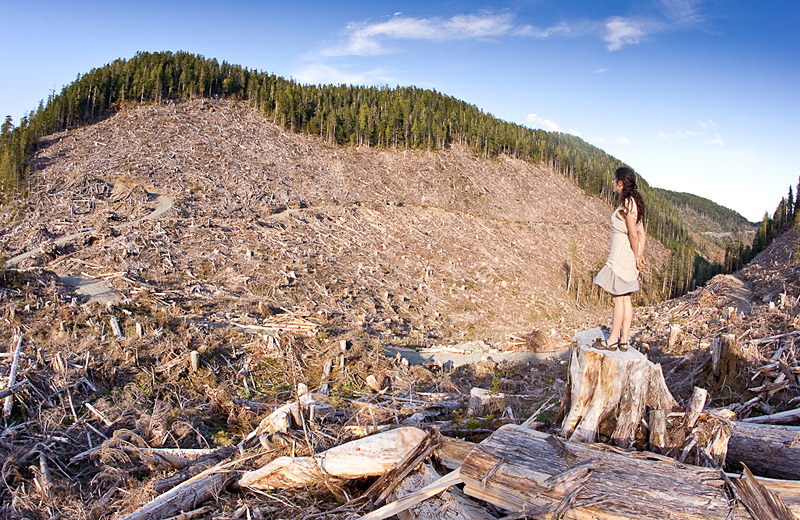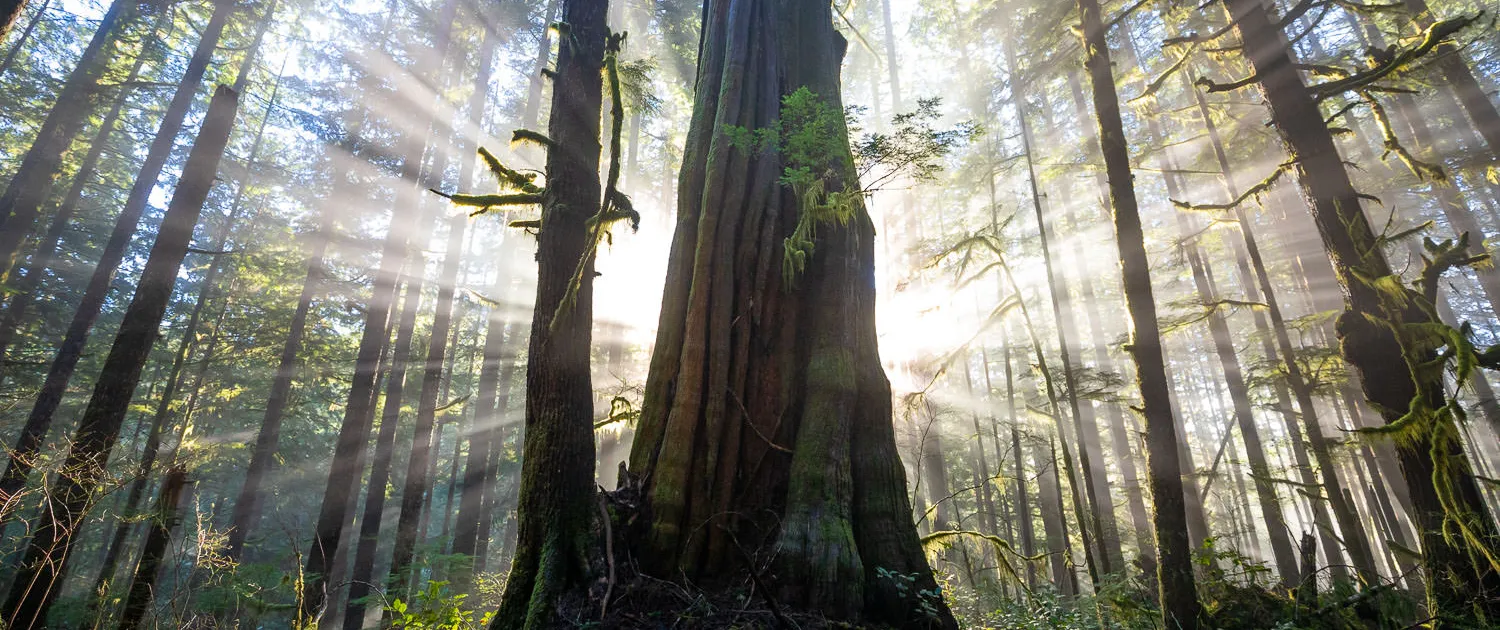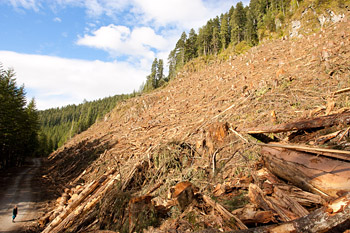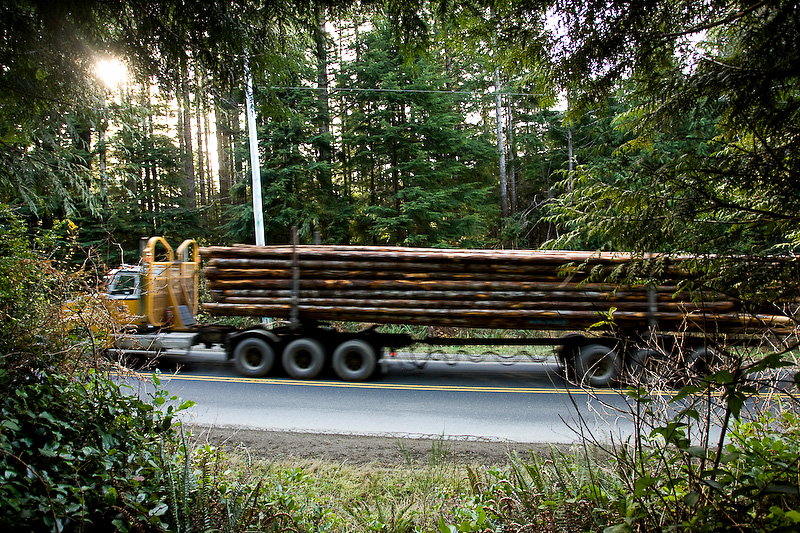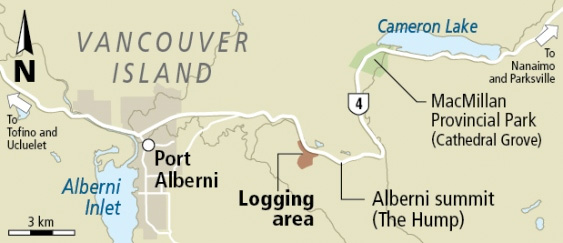Protecting the Clearwater Valley would help mountain caribou recovery
IF WE CAN’T maintain a viable mountain caribou herd in a vast protected area like Wells Gray Provincial Park, then what hope is there of doing so elsewhere?
That’s my question for Canfor, the corporate giant now ramping up to “salvage log” hundreds of hectares of mature and old-growth forest near the southern and western boundaries of Wells Gray, two hours north of Kamloops.
Clearcut logging in the Clearwater Valley will inevitably create winter forage favourable to deer and moose. As these animals increase in numbers, so will their main predators, cougars and especially wolves. This is hardly good news for the mountain caribou that make their home in the park’s high-elevation old-growth forests a few kilometres distant.
Government biologists are well aware that past logging just outside the park is largely to blame for a recent collapse of the south Wells Gray herd. Ten years ago this herd numbered about 325 animals. Today only about 200 are left, down by about one-third.
Clearcut logging exposes the mountain caribou to levels of predation they did not evolve with and are unable to adapt to. Compounding the problem is a low reproductive rate, a mature cow caribou giving birth to only one calf every two years. Clearly it doesn’t take much to tip these animals toward extinction.
The flow of cause and effect could hardly be more straightforward: clearcuts support more moose and deer, more moose and deer support more top predators, more top predators roam in greater numbers into nearby protected areas, and then mountain caribou decline. Or to simplify, the more adjacent clearcuts we create, the more rapidly the mountain caribou disappears.
Clearly this is not the time to lobby the B.C. government for management decisions certain to bolster predator populations in Wells Gray area. Canfor’s Vavenby planner Dave Dobi acknowledged as much at a public meeting about a year ago, but is proceeding with his plans nonetheless. At the same meeting he also made clear his company’s intention eventually to log the entire Clearwater Valley. Whatever timber Canfor has a legal right to log, it will log.
Such a statement is hard to reconcile with sentiments recently expressed by Canfor CEO and president Don Kayne, who in a letter to the Vancouver Sun asserted that Canfor “will not support actions that impact parks or critical habitat for species at risk”. One can’t help feeling that Kayne would be appalled if he knew what his Vavenby planner was up. To be implicated in the decline of a nationally threatened animal like the mountain caribou surely can’t be good for business.
In 2002, the mountain caribou was designated as nationally threatened. Its global range lies almost exclusively within British Columbia. Decisions being made in B.C. today will have long-term implications for its future viability. Already the province’s southern herds are blinking out—sustained entirely by predator culls and other costly, dubiously effective forms of life support.
Best science identifies Wells Gray Park as one of only two regions where the mountain caribou might reasonably be expected to persist into the long term, in a human-dominated world. (The other area is the Hart Ranges in the far north of the range.) This makes it imperative that the Wells Gray herd receive special attention now, before it’s too late.
This returns me to my opening question: If we can’t maintain a viable mountain caribou herd in a vast wilderness park like Wells Gray, then what hope is there of doing so elsewhere?
In its Mountain Caribou Recovery Implementation Plan, announced in 2008, the B.C. government placed 2.2 million hectares of prime high-elevation winter caribou habitat off limits to logging. Clearly this isn’t working; it’s not enough. For recovery to take place, we also need to refrain from creating additional pressure from predators by logging at lower elevations just outside their key habitat. Areas like the Clearwater Valley.
The Wells Gray World Heritage Committee (WHC) recently challenged the B.C. government to help make Wells Gray Park ecologically self-sustaining by adjusting its boundaries southward. This has been done twice in the past: once in the mid ’50s, and again in the mid ’90s.
The habitat needs of mountain caribou played a major role in both decisions. Protecting a small area adjacent to the park would be a huge step to recovery for the Wells Gray herd.
As an interim measure, WHC is also calling upon B.C. minister of environment Terry Lake to establish a moratorium on industrial logging in the Clearwater Valley. For more information, or to help, please visit the WHC website.
Link to online article: https://www.straight.com/news/351556/trevor-goward-protecting-clearwater-valley-would-help-mountain-caribou-recovery


